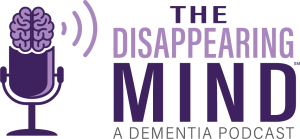Most people may experience low levels of vitamin D in their bodies at some point in their lives. However, vitamin D deficiency is likely to become more common with age due to the changes in our bodies. However, this deficiency may not be apparent due to a senior’s pre-existing health conditions. As such, we should learn to identify the symptoms of vitamin D deficiency in order to ensure that our family members or loved ones can continue to enjoy a healthy life.
Recommended Daily Dose for Vitamin D
Vitamins are essential nutrients for your body – they ensure that your body remains in tip-top working condition. They are also one of the few compounds that your body is unable to produce on its own. Unlike most vitamins, however, vitamin D is so important that it can be obtained naturally by being exposed to the sun!
On the other hand, how do you know if your body has produced enough vitamin D? Other than the food you eat, which is certainly a good indicator, there is no way to tell if you have taken the required amount of vitamin D for your body. According to research, your diet accounts for just 10 percent of your daily vitamin D requirement. So although there is an abundance of foods containing it, vitamin D from food alone won’t get you to your daily intake goals – the recommended vitamin D amount is 600 IU in adults between 19 and 70, and 800 IU in those aged 70 and above.
Vitamin D Deficiency in Seniors
Vitamin D deficiency in seniors can be traced to a number of possibilities. As a senior, you are less likely to spend time outdoors, which limits your exposure to the sun and the production of vitamin D by your body. Furthermore, with the gradual thinning of your skin, your body may no longer be able to make vitamin D as efficiently as before. If you have not been eating food rich in vitamins or taking vitamin supplements, the lack of important nutrients in your body can further aggravate the effects of vitamin D deficiency in your body.
Signs of Low Levels of Vitamin D
Here are five tell-tale signs of vitamin D deficiency in seniors that you should be aware of:
- You may experience muscle weakness, particularly if you are not as physically active as before. This is because vitamin D helps in the absorption of calcium – an important mineral for bone and muscle strength.
- Your mood may become less regulated as an active component of vitamin D, calcitriol, is no longer produced in adequate amounts.
- You may start to gain weight. Studies suggest that vitamin D is a crucial component in regulating leptin levels in your body, a hormone that inhibits the urge to eat. When you lack vitamin D, you may end up overeating.
- As a senior, you may think it’s perfectly normal to become tired more easily. And nine times out of ten, you may be right. However, constant lethargy or fatigue can also be due to a case of vitamin D deficiency.
- You may develop inflammation of the bowel as a result of vitamin D deficiency as certain foods are not effectively absorbed by your gut.
Importance of Vitamin D
Suffice it to say, your vitamin D intake contributes to many aspects of your health. Pain, depression and fatigue are all commonly associated symptoms of vitamin D deficiency and, more often than not, are misinterpreted as signs of aging. At The Park Oak Grove, we are committed to meeting your body’s daily nutritional needs. If you or a loved one is looking to move into a senior assisted living community, we would like to invite you to tour our beautiful grounds and learn about our exclusive senior living programs. Our team members will be more than happy to answer any questions you have!








